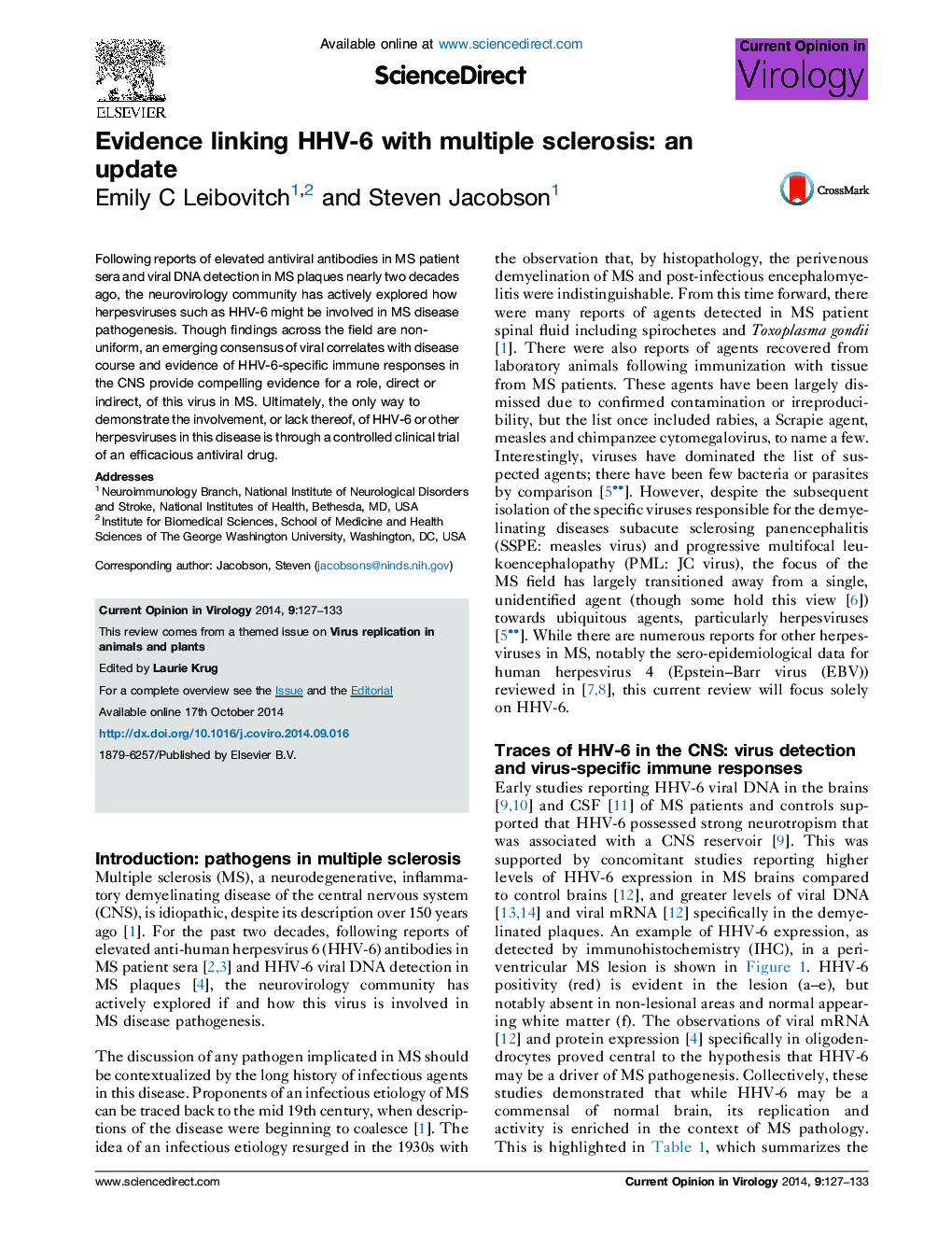| Article ID | Journal | Published Year | Pages | File Type |
|---|---|---|---|---|
| 2473338 | Current Opinion in Virology | 2014 | 7 Pages |
•Additional observations of HHV6-specific B and T cell reactivity in MS CSF.•Evidence of correlations between HHV6 status, polymorphisms and response to therapy.•Controlled trial of anti-HHV6 therapeutic needed to demonstrate MS involvement.
Following reports of elevated antiviral antibodies in MS patient sera and viral DNA detection in MS plaques nearly two decades ago, the neurovirology community has actively explored how herpesviruses such as HHV-6 might be involved in MS disease pathogenesis. Though findings across the field are non-uniform, an emerging consensus of viral correlates with disease course and evidence of HHV-6-specific immune responses in the CNS provide compelling evidence for a role, direct or indirect, of this virus in MS. Ultimately, the only way to demonstrate the involvement, or lack thereof, of HHV-6 or other herpesviruses in this disease is through a controlled clinical trial of an efficacious antiviral drug.
Graphical abstractFigure optionsDownload full-size imageDownload as PowerPoint slide
